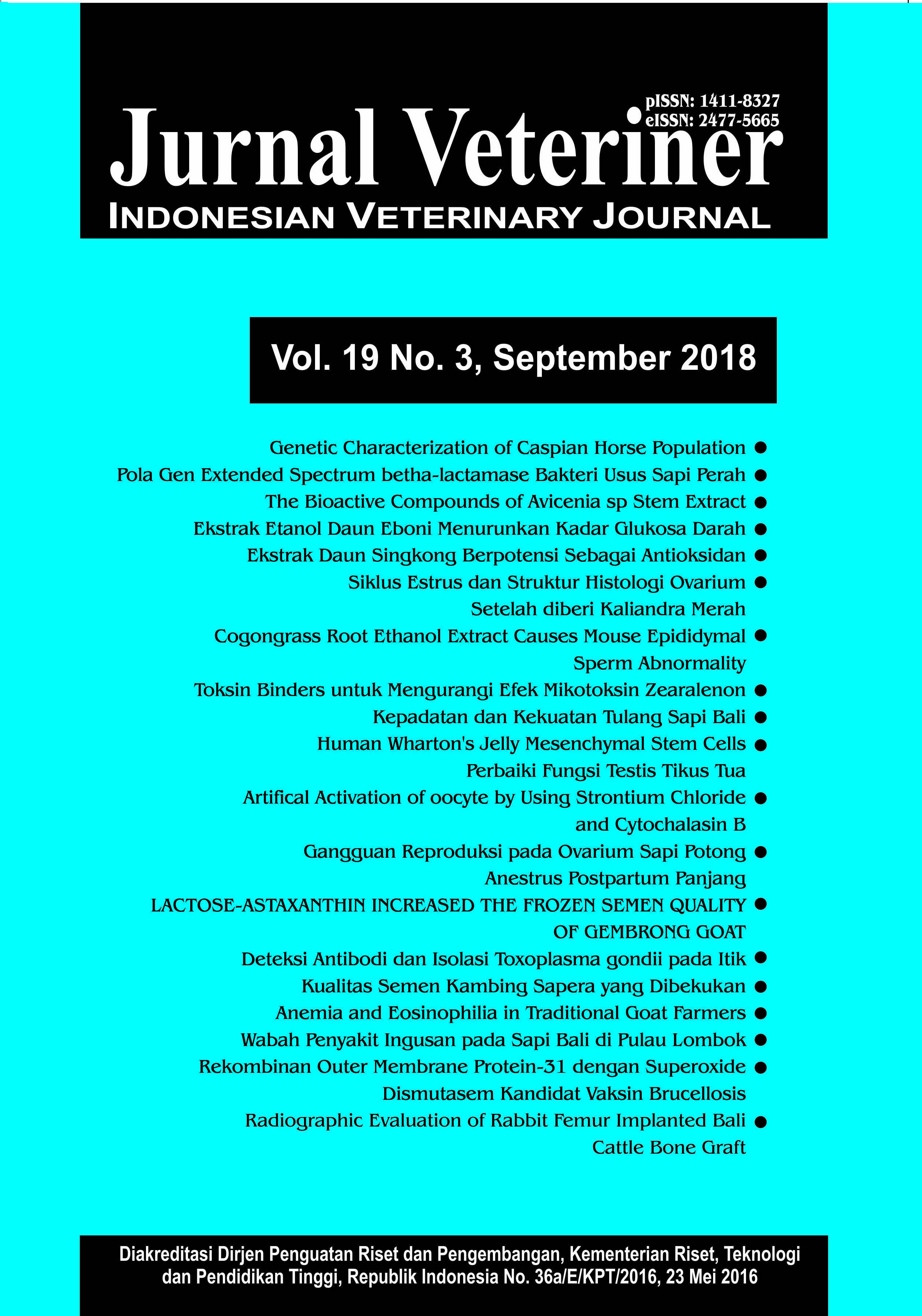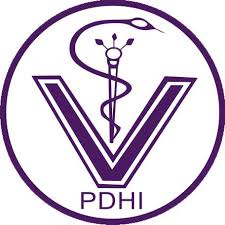Ekstrak Daun Singkong Berpotensi Sebagai Antioksidan pada Burung Puyuh yang Mendapat Cekaman Panas Singkat
(THE TOTAL ERYTHROCYTE COUNT, HEMATOCRIT VALUE, HEMOGLOBIN CONCENTRATION AND ERYTHROCYTE INDEX IN QUAIL EXPOSED HEAT EXPOSURE AND CASSAVA LEAVES EXTRACT)
Abstract
The purpose of this study was to explore the potential of cassava leaves extract as an antioxidant in quail (Coturnix coturnix japonica) females as a result of heat exposure. The parameter are total erythrocyte count, hematocrit value, hemoglobin concentration and erythrocyte index (MCV, MCH, MCHC). Quails were devided into six groups. The control group (K0) was not given cassava leaves extract and heat. Treatment group (KL) was only given chlorophyll cassava leaves extract dose 5,29 mg/g. Group P was only given heat exposure. Group P+KL1, P+KL2, and P+KL3 were exposed to heat and given the doses of cassava leaves extract 5,29 mg, 10,58 mg, and 21,16 mg/168 g body weight, respectively orally for 28 days after a week of adaptation. Parameters such as the total erythrocyte count, hematocrit value, hemoglobin concentration and erythrocyte index (MCV, MCH, MCHC) were observed every two weeks. Results showed that the mean of eritrosit ranged from 8,64 x 106/mm3 in K0 to 10,47 x 106/mm3 in P+KL3. Hematocrit value in all treatment groups did not increase. Temperature exposure and paste of cassava leaves with different level of dosages were not significantly different from MCV (P>0,05). The highest level of MCV was obtained in treatment K0 (0,48 fl). The highest level of MCH ranged from 5,83-6,33 pg. The highest level of MCH was obtained in treatment P (6,33 pg). The highest level of MCHC was obtained in treatment P (63,38 %). The mean of MCHC level in quail treated with the paste of cassava leaves tended to decrease compared to those were not treated with the paste. Conclusion of this study is cassava leaf extract has potential as an antioxidant in adult quail given short heat exposure. The application of chlorophyll extracted from cassava leaves did not significantly affect the quantity of blood cells, haemoglobin level, hematocrit value and eritrosite index in adult quail treated by short thermal stress.



















